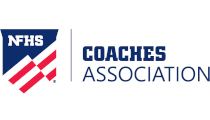As coaches, there are all too many ways to have negative issues with parents. Cuts, playing time, practice issues, names in newspapers, end-of-season awards – all have the ability to cause a rift between parents and coaches. Above all, however, is one sure-fire way to ruin that coach-parent relationship – lack of communication. If you want to avoid this, remember the adage “An informed parent is a happy parent.”
First, all coaches should have a preseason meeting with parents AND players, complete with a brief written handout that articulates those expectations. If cuts are likely, explain what criteria you will use to make those cuts. If you have specific team rules, spell them out on Day One. Try to consider all situations ahead of time, and determine what the consequence will be. Are you going to require that they dress up for games? What is your policy if a kid has an excused absence from practice the day before a game? How will you determine who gets a varsity letter?
While there is often something that crops up over the course of the season that wasn’t covered, you would be surprised at how many potential issues were covered from Day One. When a parent explains that their son or daughter had a dentist appointment the day before a game and it was the only time that they could get, you can fall back on your preseason written rules and explain that you understand and are sorry, but you also need to be consistent and your team rule is that they don’t start, or whatever your consequence is. Be PROACTIVE as a coach, not reactive.
At your meeting, provide parents a schedule for the season. Games, practices, days off, bus times – get it out there. Parents put it in their calendars and forget about it. Unfortunately, here in the Northeast especially, Mother Nature doesn’t always follow your schedule. Games change, practices change, days off change; and even though you told the players and parents three weeks ago that the practice was changed, there are always a few who never made that change in their calendar. Again, this is another reason for the preseason meeting.
Be sure to distribute an email list that has all the team information. Once a week, send a reminder email home with all of the upcoming practices, games, bus times, etc. Sure, it is a pain, but it only takes about 10 minutes, people can double-check their schedule and parents are appreciative that they know what is going on. In short, they are happy.
As an aside, many districts have – or should have – restrictions on coach-player texting, use of Twitter and Facebook, etc. Websites are OK, but how many people check them every day to see if there are changes? Everyone checks their email – it seems to be universally accepted and used by school districts to get information home, and it is hard to argue that they didn’t get the message.
Finally, it is very important to communicate with parents an end time to your practices, and hold to that time. If you say practice will end at 5:30, end at 5:30. Gone are the days when coaches could decide that the team didn’t quite get it and needed to keep going for another hour. Each car in that parking lot contains a parent who is getting madder and madder by the minute because he or she sees that your time is more valuable than theirs. In the long run, extending practices without warning isn’t worth it. While you may (but probably won’t) feel that the extra time really benefitted your team, you will also have a bunch of parents who may not say anything right then, but will start to sour on the coach and this could lead to problems later on.
Parents don’t drive the ship, but they are important cogs in building your team and having the support you need at home. Having a clear and consistent level of communication is easy and proactive, and creates an atmosphere within which you can do what you are supposed to do – coach.
Dan Meserve
Dan Meserve is a member of the NFHS Coaches Publications Committee. He has been an athletic director at Hopkinton High School in New Hampshire for 16 years, and is the varsity softball coach. He also has three high school and middle school-aged children.
Most Recent Articles
- nfhs news NFHS Learning Center Delivers 25 Millionth Course
- Track & Field/Cross Country article Effective Communication with Athletes and Coaches
- nfhs news Player Equipment Changes Highlight 2025 High School Football Rules Revisions
- Player Equipment Changes Highlight 2025 High School Football Rules Revisions
- nfhs news Judgment Call on Second Contact Eliminated in High School Volleyball






